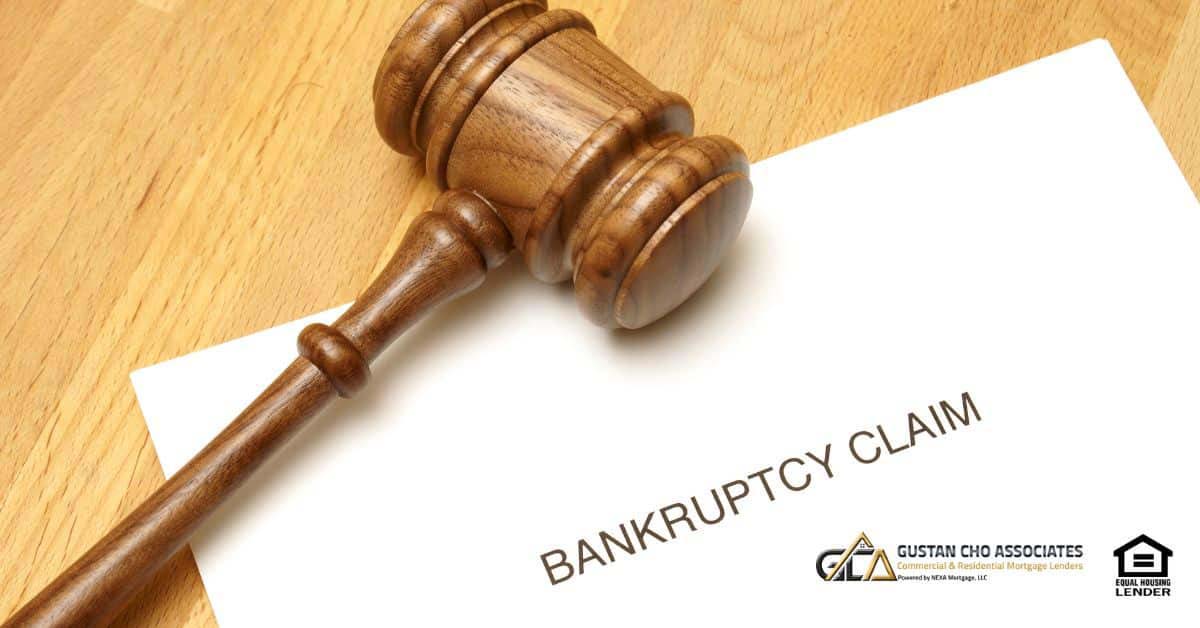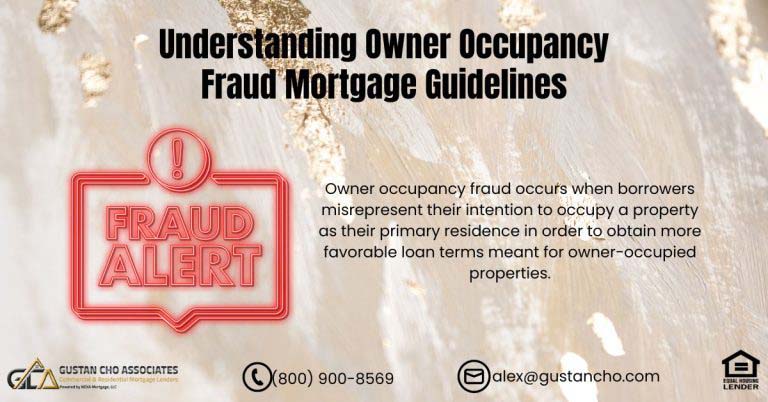This article will discuss HUD bankruptcy guidelines following Chapter 7 and Chapter 13 bankruptcy, particularly about FHA loans. HUD Bankruptcy Guidelines affirm that individuals can become eligible for FHA loans after Chapter 7 and Chapter 13 Bankruptcy filings.
Many prospective homebuyers, particularly those entering the market for the first time, may erroneously believe that obtaining a mortgage is exceedingly difficult after undergoing bankruptcy proceedings.
However, this misconception is unfounded. Initially, bankruptcy may cause a significant drop in consumer credit scores, often exceeding 100 points. Yet, it’s crucial to recognize that this decline is temporary.
As time progresses, credit scores typically begin to rebound. Moreover, individuals can expedite this process by acquiring new revolving credit after their bankruptcy discharge. Secured credit cards represent one of the simplest and quickest methods for rebuilding credit post-bankruptcy. This article will explore HUD Bankruptcy Guidelines following Chapter 7 and Chapter 13 Bankruptcy scenarios.
Is It Possible To Get Mortgage After Bankruptcy?
Bankruptcy, a federal law, allows consumers to begin anew financially. A bankruptcy discharge eliminates most consumer debts, offering individuals a fresh start in life.
Bankruptcy discharges encompass various debts, including outstanding collections, repossession charge-offs, charge-off accounts, foreclosure deficits, judgments, and personal debts. However, it’s important to note that certain debts, such as government debts, federal student loans, tax liens, and other non-exempt debts, cannot be discharged under bankruptcy regulations outlined in HUD Bankruptcy Guidelines.
Can I get a mortgage after bankruptcy?
Yes—FHA, VA, USDA, and Conventional loans all allow financing after waiting periods.
Qualifying and Getting Pre-Approved For an FHA Loan After Bankruptcy
HUD guidelines after ankruptcy has lenient lending requirements for those folks who had a prior bankruptcy. There are waiting period requirements to qualify for government and conventional loans after bankruptcy.
Gustan Cho Associates at has non-QM Loans where there are no waiting period requirements after bankruptcy, foreclosure, short-sale, deed in lieu of foreclosure.
Gustan Cho Associates are mortgage consultants licensed in multiple states with no lender overlays on government and conventional loans. In this blog, we will discuss HUD guidelines after bankruptcy versus other loan programs.
HUD Guidelines After Bankruptcy Eligibility Requirements
HUD is the parent federal agency of FHA. HUD sets HUD Guidelines After Bankruptcy Mortgage Guidelines. Here are the HUD Guidelines After Bankruptcy Mortgage Eligibility Requirements:
- There is a two-year waiting period after Chapter 7 Bankruptcy discharged date to qualify for FHA loans
- Borrowers can qualify for FHA loans after making 12 monthly timely payments to the bankruptcy trustee during Chapter 13 bankruptcy repayment plan
- Chapter 13 bankruptcy does not need to be discharged
- Needs to be a manual underwrite
- There is no waiting period after Chapter 13 Bankruptcy discharge date
- If the Chapter 13 discharge has not been seasoned for two years, it needs to be a manual underwrite
- Outstanding collections and charge off accounts do not have to be paid to qualify for FHA loans
- The minimum credit score to qualify for a 3.5% down payment FHA home purchase loan is 580 FICO
- Borrowers with credit scores under 580 FICO can qualify for FHA loans with a 10% down payment
- The minimum credit score HUD Guidelines allow is 500 FICO to qualify for FHA loans
HUD Guidelines After Bankruptcy: Preparing To Qualify For FHA Loans After Bankruptcy
Potential home buyers should start early prepare in qualifying for FHA loans after bankruptcy. Getting qualified for any loan program takes time to prepared after bankruptcy. Avoid any late payments after bankruptcy.
Late payments after bankruptcy and/or housing event is viewed as a second offender by all lenders. Most lenders will not welcome borrowers with late payments after bankruptcy and/or foreclosure.
One of two late payments after bankruptcy and/or foreclosure is not always a deal killer but it is viewed extremely negatively by all lenders.
Re-Establishing Credit After Bankruptcy
Following a bankruptcy discharge, numerous homebuyers journey to restore their financial stability. They diligently work towards rebuilding their credit scores, often by securing new employment opportunities and adopting prudent saving habits. As they progress along this path, many are eager to pursue homeownership again.
Traditional mortgage options often impose a mandatory waiting period following bankruptcy, adding to the challenges these hopeful buyers face. However, at Gustan Cho Associates, we recognize our client’s unique circumstances and offer an innovative solution. Through our non-QM mortgage program, individuals can access financing without being subjected to lengthy waiting periods post-bankruptcy or foreclosure.
This alternative lending option has garnered increasing popularity among our clientele due to its flexibility and expedited process. By bypassing the typical waiting period, borrowers can swiftly transition from bankruptcy to homeownership, empowering them to embark on a fresh chapter of financial stability and homeownership.
Chapter 7 and Chapter 13 of HUD Bankruptcy Guidelines
Individuals who have experienced bankruptcy can look towards the HUD Bankruptcy Guidelines as a source of inspiration to restore their financial stability. These guidelines provide hope and serve as a beacon to those seeking to rebuild their financial situation. Understanding these guidelines empowers borrowers by providing a roadmap to navigate the often daunting process of securing a mortgage post-bankruptcy.
With a clear understanding of HUD’s waiting periods and criteria, borrowers can take proactive steps to re-establish their creditworthiness and position themselves for success in obtaining an FHA loan.
Moreover, these guidelines underscore the FHA’s commitment to fostering homeownership opportunities for individuals who have faced financial adversity. By offering paths to qualification after Chapter 7 and Chapter 13 bankruptcy, the FHA demonstrates its dedication to inclusivity and second chances.
Through adherence to these guidelines and collaboration with knowledgeable mortgage professionals, individuals can confidently pursue their dreams of homeownership, knowing there are viable options despite past financial challenges.
What is the waiting period for a FHA loan after Chapter 13?
The waiting period for an FHA loan after a Chapter 13 bankruptcy can vary depending on certain factors. Generally, borrowers may be eligible for an FHA loan after completing their Chapter 13 bankruptcy and receiving court approval. However, they typically need to wait at least two years from the discharge date of the Chapter 13 bankruptcy before they can qualify for an FHA loan.
Additionally, they must demonstrate that they have re-established good credit and have maintained a steady income during the waiting period. For personalized advice, it is crucial to consult a mortgage lender or financial advisor who can address your specific needs.
Can I Get Approved For an FHA Loan During and After Chapter 13 Bankruptcy?
FHA and VA loans are the only two mortgage loan programs that allow homebuyers during Chapter 13 Bankruptcy repayment plan to qualify for a mortgage loan without the bankruptcy being discharged.
Chapter 13 Bankruptcy does not have to be discharged. There is no waiting period after the Chapter 13 Bankruptcy discharge date, but it needs to be manually underwritten if the discharge has not been seasoned for 24 months.
Are HUD (FHA) guidelines more flexible than Conventional?
Yes—FHA loans typically allow shorter waiting periods and lower credit scores.
Does FHA require all 3 credit scores?
When evaluating a borrower’s creditworthiness, FHA lenders typically look at all three major credit bureau scores (Equifax, Experian, and TransUnion). While some lenders may only pull one credit score from a single bureau, many FHA lenders prefer to review all three scores to get a comprehensive picture of the borrower’s credit history and financial situation. Having consistent and strong credit scores across all three bureaus can increase the likelihood of approval and result in better loan terms.
Does FHA require all collections to be paid off?
FHA lenders typically assess collections on a case-by-case basis. Some collections may need to be paid off or have payment arrangements made before the loan can be approved, especially if they are significant or affect the borrower’s creditworthiness.
FHA guidelines don’t mandate that all collections be paid off for loan approval.
In certain cases, FHA borrowers may be able to proceed with the loan even if they have outstanding collections, particularly if they can demonstrate extenuating circumstances or if the collections are relatively small. Ultimately, the decision often depends on the lender’s underwriting standards and the borrower’s specifics regarding the financial situation. It’s crucial to discuss any outstanding collections with your lender to understand how they might impact your FHA loan application.
HUD 4000.1 FHA Handbook on FHA Loans
The HUD 4000.1 FHA Handbook is a comprehensive guide that outlines the policies and procedures for FHA-insured mortgages. It covers various aspects of FHA loans, including borrower eligibility, property requirements, underwriting guidelines, appraisal standards, and loan servicing procedures. The handbook is a valuable resource for lenders, mortgage professionals, and borrowers involved in FHA loan transactions.
HUD Guidelines after Bankruptcy versus Other Loan Programs
Navigating the world of home financing can be challenging, especially if you’ve experienced bankruptcy. Understanding HUD guidelines after bankruptcy is crucial for anyone looking to buy a home or refinance after financial setbacks.
HUD oversees the Federal Housing Administration (FHA) loan program and offers more lenient rules than other mortgage options.
This comprehensive guide will break down HUD guidelines after bankruptcy, compare them to conventional, VA, and USDA loans, and provide actionable advice to help you move forward.
Understanding Bankruptcy and Its Impact on Mortgage Eligibility
Bankruptcy is a legal process that helps individuals or businesses eliminate or repay debts under court protection. There are two main types relevant to mortgages: Chapter 7 (liquidation) and Chapter 13 (reorganization).
Filing for bankruptcy can severely impact your credit score, often dropping it by 100-200 points, and it remains on your credit report for 7-10 years.
This derogatory mark signals a higher risk to lenders, leading to mandatory waiting periods before you can qualify for a new mortgage. These “seasoning” periods allow time to rebuild credit and demonstrate financial stability. HUD guidelines after bankruptcy are generally more forgiving than those for conventional loans, making FHA-backed mortgages a popular choice for post-bankruptcy borrowers. However, all programs require proof of reestablished credit, such as on-time payments on new accounts.
HUD Guidelines After Bankruptcy on FHA Loans
HUD guidelines after bankruptcy focus on FHA loans, which the government insures to encourage lending to borrowers with lower credit scores or past financial issues. These guidelines emphasize the discharge date (when debts are officially eliminated) rather than the filing date. Extenuating circumstances, like job loss or medical emergencies, can sometimes shorten waiting periods if documented.
Chapter 7 Bankruptcy Under HUD Guidelines
For Chapter 7 bankruptcy, which involves liquidating assets to pay debts, HUD requires a standard waiting period of two years from the discharge date before you can apply for an FHA loan.
If extenuating circumstances caused the bankruptcy, this can be reduced to one year with lender approval and Documentation.
During this time, you must reestablish good credit, avoid new derogatory marks, and meet FHA’s minimum credit score of 500-580 (depending on down payment). Borrowers must also provide a letter explaining the bankruptcy and steps taken to prevent recurrence.
Chapter 13 Bankruptcy Under HUD Guidelines
Chapter 13 allows you to keep assets while repaying debts over 3-5 years. HUD guidelines after bankruptcy are even more flexible here: There’s no mandatory waiting period after discharge, meaning you could qualify immediately if your credit is rebuilt. If still in an active Chapter 13 plan, you can apply after 12 months of on-time payments, with court permission and lender verification that the plan is being followed. This makes FHA loans ideal for those in repayment plans, as long as you’ve demonstrated financial responsibility.
Comparison with Conventional Loan Programs
Conventional loans, backed by Fannie Mae and Freddie Mac, are not government-insured and thus have stricter requirements. Unlike HUD guidelines after bankruptcy, which prioritize accessibility, conventional programs focus on risk mitigation, leading to longer waiting periods. These loans typically require higher credit scores (620+) and larger down payments.
Waiting Periods for Conventional Loans After Bankruptcy
For Chapter 7 or Chapter 11 bankruptcy, Fannie Mae and Freddie Mac mandate a four-year waiting period from the discharge or dismissal date. This can be shortened to two years with documented extenuating circumstances. Chapter 13 is treated differently: Two years from the discharge date or four years from dismissal. This is less forgiving than HUD guidelines after bankruptcy, especially for Chapter 7 filers who face double the wait time.
VA Loan Guidelines After Bankruptcy
VA loans, guaranteed by the Department of Veterans Affairs, are available to eligible military members, veterans, and spouses. These offer benefits like no down payment and no private mortgage insurance.
VA guidelines after bankruptcy align closely with HUD’s, but with some nuances. For Chapter 7, expect a two-year waiting period from discharge.
However, it can be reduced to one year if extenuating circumstances exist and you’ve rebuilt credit. For Chapter 13, you can qualify after one year of on-time plan payments with court approval, or immediately after discharge if your credit is solid. Overall, VA rules are similar to HUD guidelines after bankruptcy, making them a strong alternative for qualified borrowers.
Bankruptcy Isn’t the End of Homeownership
Learn how government and conventional programs handle waiting periods.
USDA Loan Guidelines After Bankruptcy
USDA loans, backed by the U.S. Department of Agriculture, target rural homebuyers with low-to-moderate incomes and offer zero-down financing. In some areas, they are stricter than HUD guidelines after bankruptcy.
Chapter 7 requires a three-year waiting period from discharge or dismissal. For Chapter 13, there’s no waiting period after discharge.
However, if the plan is active, you need at least 12 months of payments, court permission, and proof of financial stability. Compared to HUD, USDA has a longer wait for Chapter 7 but similar flexibility for Chapter 13.
Tips for Qualifying for a Mortgage After Bankruptcy
Rebounding from bankruptcy requires patience and strategy. Here are key steps to align with HUD guidelines after bankruptcy or other programs:
- Rebuild Your Credit: Pay all bills on time, keep credit utilization below 30%, and consider secured credit cards.
- Aim to boost your score above 620 for better rates.
- Save for a Down Payment: FHA requires as little as 3.5%, but a larger amount (10-20%) can strengthen your application.
- Improve Your Debt-to-Income Ratio: Keep DTI under 43% by paying down debts and increasing income.
- Gather Documentation: Prepare a bankruptcy explanation letter detailing causes and preventive measures.
- Get Preapproved: Shop lenders early to understand options and lock in rates.
- Work with Experienced Lenders: To navigate exceptions, choose those familiar with post-bankruptcy approvals.
- Monitor Your Credit Report: Dispute errors and track progress annually.
FAQ about HUD Bankruptcy Guidelines After Chapter 7 And Chapter 13
- 1. Is it possible to get a mortgage after bankruptcy? Yes, qualifying for a mortgage after bankruptcy, including FHA loans, is possible. Bankruptcy allows consumers a fresh start in their financial life by discharging most consumer debts.
- 2. How can credit be re-established after bankruptcy? Credit can be re-established by obtaining new revolving credit, such as secured credit cards. This helps improve credit scores over time, along with maintaining a positive payment history and stable income.
- 3. What are the guidelines for HUD Bankruptcy related to FHA loans following Chapter 7 and Chapter 13 bankruptcy? After obtaining a Chapter 7 bankruptcy discharge, individuals must wait two years before being considered eligible for FHA loans. For Chapter 13 bankruptcy, borrowers can qualify one year into a repayment plan with trustee approval via manual underwriting.
- 4. What is the waiting period for an FHA loan after Chapter 13 bankruptcy? Borrowers typically need to wait at least two years from the discharge date of Chapter 13 bankruptcy to qualify for an FHA loan. However, they must demonstrate re-established credit and stable income.
- 5. Can I get approved for an FHA loan during Chapter 13 bankruptcy? FHA and VA loans are the only programs allowing borrowers to qualify during Chapter 13 bankruptcy repayment plans without waiting for discharge. However, manual underwriting may be required if the discharge is not seasoned for 24 months.
- 6. Does FHA require all three credit scores? To assess creditworthiness, FHA lenders typically review all three major credit bureau scores (Equifax, Experian, and TransUnion). Consistent and strong scores across all bureaus can improve loan approval chances.
- 7. Does FHA require all collections to be paid off? FHA guidelines don’t mandate paying off all collections for loan approval. Lenders evaluate collections case-by-case, while some may need to be addressed, especially if significant, small, or explained collections might not hinder approval.
- 8. What is the HUD 4000.1 FHA Handbook? The HUD 4000.1 FHA Handbook outlines policies and procedures for FHA-insured mortgages, covering borrower eligibility, property requirements, underwriting guidelines, appraisals, and loan servicing.
For more information on this blog or other topics, please get in touch with Gustan Cho Associates at 800-900-8569, text us for a faster response, or email us at gcho@gustancho.com. Gustan Cho Associates and its subsidiaries are available seven days a week, evenings, weekends, and holidays. Gustan Cho Associates, empowered by NEXA Mortgage, LLC, are mortgage brokers licensed in 48 states, including Washington, DC, Puerto Rico, and the U.S. Virgin Islands.
Other Important Tips In Preparing For FHA Loans After Filing Bankruptcy
Enroll in a credit monitoring service like Credit Karma.com or MyFico.com. Make sure there are no errors on your credit report. Make sure that credit card balances are at a 10% or lower credit utilization ratio.
Never close out revolving accounts. Aged revolving accounts determine your credit profile. Do not apply for senseless credit. Hard credit inquiries will drop your credit scores.
Make sure you are not a victim of identity theft. Do not co-sign for anyone. Co-Signing will affect your debt-to-income ratios and buying power on a home purchase. Do not hesitate to contact your loan officer if you have any questions.
We Approve Borrowers Others Deny
With no overlays, we follow true HUD and agency guidelines.











Good morning. Than you for the detailed easy to understand blogs you have on Gustan Cho Associates. I have been following your great blogs for quite some time and have learned a lot of information with regards to me qualifying for a mortgage. I filed Chapter 13 Bankruptcy on May 14, 2014 and was in a 60 month repayment plan. I was discharged in August, 2019 (5 year plan). A home was foreclosed as part of the bankruptcy. (Home foreclosed January, 2020 by agreement.)
Do you have the terms for the Non-QM Loans? I don’t think I fit FHA until January 2023, but I may qualify for Conventional (FNMA) after May 2021?
Just trying to see my options.
I want to improve my credit so I can purchase a home. I currently have a 547 Fico Score 5. I currently have a 616 Fico Score 8. I would like to follow a plan to get qualified to purchase a home.
Income of the debtor is the most important factor in determining Chapter 7 vs Chapter 13 bankruptcy. A debtor’s average household monthly income for the previous six months must be at or below the median income of a similar-sized household for the debtor to qualify for Chapter 7. My Chapter 13 case was completed & discharged on 3/07/2021….paid in full
My Credit Scores are: 714, 691 and 678 and I have very carefully built my credit up
My Household Income is $145K
I have been renting a house since November 2019 that I am negotiating to purchase it with the willing owner
I qualify for FHA, but will need a reputable bank that does manual underwrites. My recent FHA loan request came back – and the (AUS) rendered it “refer/eligible.”
My end date in the house I am currently renting is 5/31/2021 and I have all the paperwork needed to expedite the FHA loan verification process